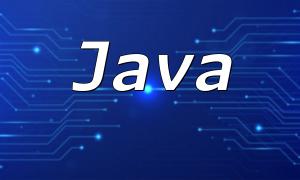PHP is a widely used server-side programming language primarily for web development. Having good PHP coding standards is essential for every PHP programmer and can significantly improve the reusability and maintainability of the code. This article will highlight key points of PHP coding standards to help developers improve their code quality.
In PHP, variable names should follow the camelCase naming convention. Variable names should consist of letters and numbers, without using underscores or special characters. The names should be concise and easy to understand.
$firstName = "John"; // Correct naming convention$first_name = "John"; // Not recommended naming conventionConstant names should be written in uppercase letters, with underscores separating words to improve readability.
define("MAXIMUM_HEIGHT", 100); // Correct naming conventiondefine("Maximum_Height", 100); // Not recommended naming conventionFunction and class names should follow the PascalCase naming convention. They should begin with a letter and consist only of letters and numbers, without using underscores.
function calculateArea() { // Correct naming convention }class UserAccount { // Correct naming convention }PHP code should be indented using 4 spaces to ensure clarity and structure in the code.
function calculateArea($length, $width) {
$area = $length * $width;
return $area;
}Try to avoid having lines of code that are too long. If a line exceeds 80 characters, break it into multiple lines where appropriate. Additionally, it is recommended to place opening and closing braces on their own separate lines to improve readability.
if ($condition1 && $condition2 && $condition3 && $condition4) {
// Do some stuff
}if ($condition1
&& $condition2
&& $condition3
&& $condition4) {
// Do some stuff
}Comments are an essential part of code that help make it easier to understand and maintain. In PHP, there are three common types of comments.
Single-line comments are added at the end of a line of code to explain the function or purpose of the code.
$name = "John"; // Set variable name to JohnInline comments are added within a line of code to explain the specific operation performed by that line.
function calculateArea($length, $width) {
$area = $length * $width; // Calculate the area
return $area;
}Block comments are used to explain a block of code, typically placed before or after the code block.
/*
* Calculate the sum of two numbers
*/
function add($a, $b) {
return $a + $b;
}Following PHP coding standards helps improve code maintainability and reusability. This is especially important in team environments and project management, where standardized code reduces errors and boosts development efficiency. The points outlined above are just some of the key PHP coding standards, and developers can further explore and apply more standards based on project needs.









